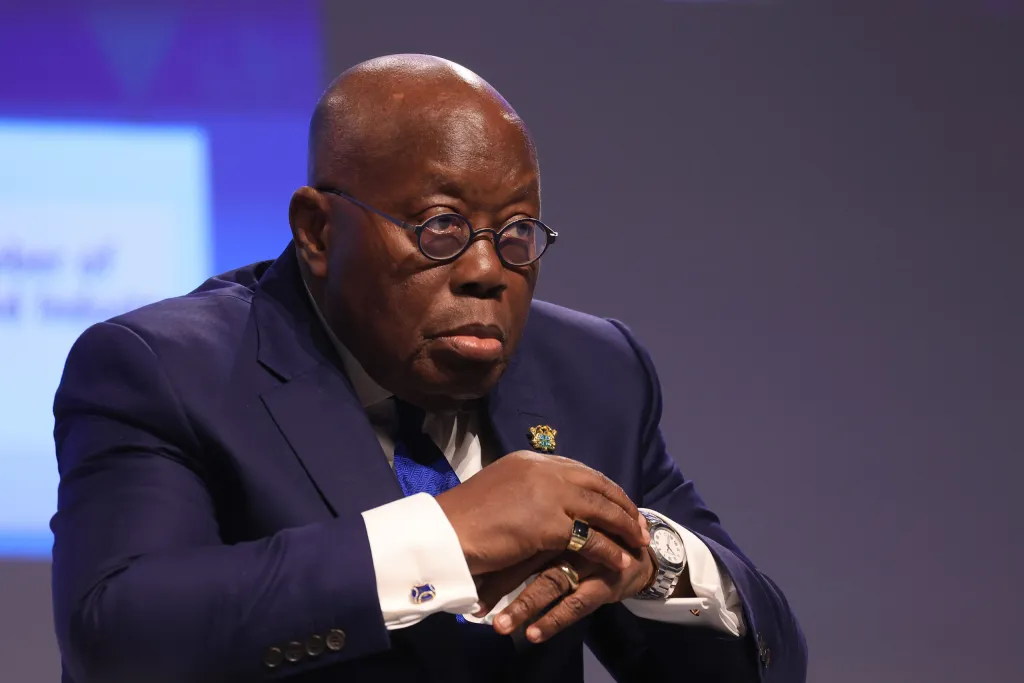Has Nana Addo’s Leadership Become a System of Kleptocracy?
In recent years, criticisms of Nana Addo Dankwa Akufo-Addo’s administration have grown louder, with accusations of kleptocracy taking centre stage. Kleptocracy—a term used to describe governance characterized by corruption and the looting of state resources—has become a contentious label applied by critics who claim the current government prioritizes personal and elite gains over the welfare of ordinary Ghanaians.
Let’s break down these allegations and their implications for Ghana’s governance and democracy.
What Are the Allegations?
- Corruption Scandals
Several high-profile corruption allegations have tainted the administration’s reputation:Email us to place your Ads- Claims of inflated government contracts and mismanaged public funds have made headlines.
- Scandals involving state agencies, especially in the energy and mining sectors, have sparked outrage.
- The misappropriation of COVID-19 relief funds has raised concerns about the lack of accountability in handling crises.
- Nepotism and Favoritism
Nana Addo’s administration has been accused of appointing family members and close associates to key positions of power.- This has created the perception of a “family and friends” government, undermining trust in the fairness of appointments.
- Many feel that such practices have concentrated power and resources in the hands of a privileged few.
- Economic Mismanagement
- Ghana’s rising national debt and questionable public spending have led to fears of financial instability.
- Critics point to issues such as bloated government budgets and insufficient investment in sectors that benefit ordinary citizens.
How Has This Affected Public Trust?
The allegations have had significant repercussions on public sentiment:
- Erosion of Trust: Many Ghanaians feel let down, especially given the administration’s promises to fight corruption and improve governance.
- Growing Inequality: Corruption is seen as a key driver of the widening gap between the wealthy elite and everyday Ghanaians.
- Civic Frustration: Protests and public dissatisfaction have increased, with calls for accountability growing louder.
Is There Another Side to the Story?
Supporters of Nana Addo argue that these criticisms overlook some key achievements:
- Developmental Progress: The government has invested in infrastructure, education, and healthcare. Roads, schools, and hospitals have been built, providing tangible benefits to many communities.
- Anti-Corruption Efforts: Initiatives like the Special Prosecutor’s Office and digitization efforts aimed at reducing bureaucracy have been highlighted as steps toward accountability.
- Global Challenges: Defenders suggest that some economic struggles stem from global factors, such as the COVID-19 pandemic and rising inflation, rather than mismanagement.
What Needs to Change?
To address these concerns and rebuild public trust, governance experts and activists have proposed key measures:
- Strengthening Oversight: Empower institutions like the Auditor-General’s Office and the Commission on Human Rights and Administrative Justice (CHRAJ) to function without interference.
- Transparency in Governance: Ensuring that all allegations of corruption are investigated promptly and fairly, with findings made public.
- Engaging Citizens: Creating platforms for Ghanaians to actively participate in governance, holding leaders accountable at every level.
The Way Forward
The debate over whether Nana Addo’s administration has become a kleptocracy is a reflection of the larger challenges Ghana faces in balancing power, transparency, and accountability. While critics see signs of systemic corruption, supporters point to significant achievements and external pressures that complicate governance.
Ultimately, Ghana’s democratic success will depend on its ability to hold leaders accountable, prioritize the welfare of all citizens, and foster a culture of honesty and service in public office. For now, the question remains: Can the current administration rise above these challenges and restore public confidence?



